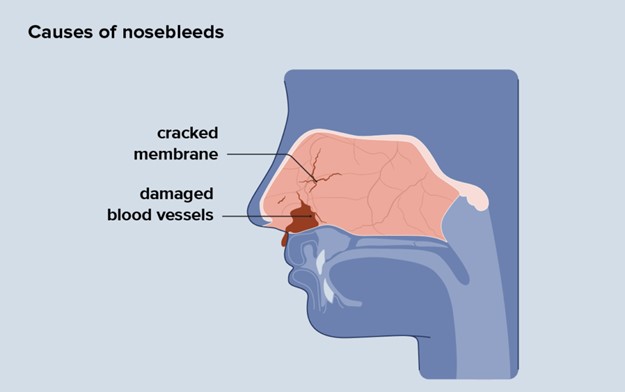A school-age child is admitted in vaso-occlusive sickle cell crisis.
The child’s care should include which intervention? (Select all that apply.)
Correction of acidosis
Adequate hydration.
Pain management.
Administration of heparin.
Correct Answer : B,C
The child’s care should include adequate hydration and pain management. The management of an acute event of a vaso-occlusive crisis is the use of potent analgesics (opioids), rehydration with normal saline or Ringer’s lactate, treatment of malaria (whether symptomatic or not) using artemisinin combination therapy, and the use of oxygen via face mask, especially for acute chest syndrome.
Choice A is wrong because correction of acidosis is not a specific intervention for the vaso- occlusive crisis.
Acidosis may occur as a complication of sickle cell disease, but it is not the primary cause of the crisis.
Choice D is wrong because the administration of heparin is not recommended for the vaso-occlusive crisis.
Heparin is an anticoagulant that may increase the risk of bleeding and does not prevent or treat the sickling process.
Normal ranges for hemoglobin are 11.5 to 15.5 g/dl for children after 2 years of age.
Normal ranges for reticulocyte count are 0.5% to 1.5% for adults and 0.5% to 2.5% for children.
Nursing Test Bank
Naxlex Comprehensive Predictor Exams
Related Questions
Correct Answer is A
Explanation
This is a normal respiratory change in pregnancy caused by elevated levels of estrogen. Estrogen increases blood flow and causes the nasal mucosa to swell, leading to congestion and nosebleeds. This condition is called pregnancy rhinitis and affects up to 20% of pregnant women.

Choice B is wrong because this is not an abnormal cardiovascular change, and the nosebleeds are not an ominous sign. They are usually harmless and do not affect the pregnancy outcome.
Choice C is wrong because there is no evidence that the woman is a victim of domestic violence.
This is a serious accusation that should not be made without proper assessment and screening.
Choice D is wrong because there is no indication that the woman has been using cocaine intranasally. Cocaine use can cause nasal damage and bleeding, but it can also have other signs and symptoms such as agitation, euphoria, dilated pupils, increased heart rate and blood pressure, and risk of miscarriage or preterm labor.
Correct Answer is C
Explanation
Placing eye shields over the newborn’s closed eyes. This is because phototherapy can cause eye damage and irritation to the newborn, so eye protection is essential.
Choice A is wrong because oil-based lotion can increase the absorption of heat and cause burns to the newborn’s skin.
Choice B is wrong because limiting the newborn’s intake of milk can cause dehydration and increase the risk of hyperbilirubinemia.
Choice D is wrong because changing the newborn’s position every 4 hours is not frequent enough to prevent pressure ulcers and ensure even exposure to the light.
Normal ranges for bilirubin levels in newborns are 1 to 12 mg/dL for term infants and 3 to 14 mg/dL for preterm infants. Phototherapy is usually indicated when the bilirubin level exceeds 15 mg/dL for term infants and 10 mg/dL for preterm infants.
Whether you are a student looking to ace your exams or a practicing nurse seeking to enhance your expertise , our nursing education contents will empower you with the confidence and competence to make a difference in the lives of patients and become a respected leader in the healthcare field.
Visit Naxlex, invest in your future and unlock endless possibilities with our unparalleled nursing education contents today
Report Wrong Answer on the Current Question
Do you disagree with the answer? If yes, what is your expected answer? Explain.
Kindly be descriptive with the issue you are facing.
